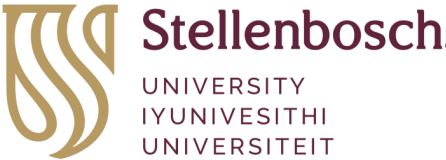
Dr Margreth Tadie, a lecturer in the Department of Process Engineering, was selected as a participant in the Future Professors Programme (FPP), which is a new initiative of the Department of Higher Education and Training (DHET) that aims to prepare promising and productive early career academics to become a new cohort of South African professors.
Initiated by the former Minister of Higher Education and Training, Dr Naledi Pandor, this distinct capacity building, national programme aims to fast-track senior researchers to full professorship at South Africa’s public universities looking to turn senior researcher/lecturers into associate professors and full professors in a shorter space of time than would have been the case without this intervention. It stems from students’ complaints during the #Feesmustfall protests about the absence of black professors and therefore targets women and black academics.
Regarding her selection as a FPP participant, Dr Tadie says: “I am excited and honoured to be selected to be part of the programme. I am looking forward to the mentorship and interaction with colleagues from all over the country. I am expecting that the programme will strengthen my contribution in society as an academic.”
Some of the attributes looked for in candidates of Future Professors Programme include:
Candidates are ideally lecturers or senior lecturers in possession of a doctorate and who have already been able to demonstrate significant academic achievement beyond the doctoral degree.
Nominations were received from 26 universities and only 29 candidates were selected. Dr Tadie is one of two Stellenbosch University candidates to have been accepted. The other SU candidate is Dr Lungiswa Nkonki, a senior lecturer in the Department of Global Health.
The FPP’s focus is to generate serious research professors and uses the National Research Foundation (NRF) rating system to identify candidates. It offers a structured curriculum that includes intensive seminars and international placement aimed at accelerating the readiness of young academics for the professoriate. Capacity building entails five to six sessions of highly structured, residential, over-weekend seminars in South Africa. Subsequently, candidates will be placed in seminars and laboratories abroad.
Dr Tadie was appointed lecturer in the Department of Process Engineering on 1 January 2016. She obtained her master’s degree from the University of KwaZulu-Natal and her PhD from the University of Cape Town. Her research fields cover sustainable extraction of minerals and valorisation of mining waste.
In 2019 she was one of 30 scientists in Africa to have been selected for the FLAIR (Future Leaders – African Independent Research) research fellowships. FLAIR is a two-year programme of The African Academy of Sciences (AAS) and the Royal Society, with support from the United Kingdom’s Global Challenges Research Fund (GCRF), and is designed to help talented early-career researchers whose science is focused on the needs of the continent, establish independent careers at African institutions and ultimately, their own research groups. Each scientist receives £300,000 (R5 472 003) over the two-year fellowship to help them with independent research. She was part of a competitive pool of 700 applicants across the continent.
Dr Tadie concludes: “I have been privileged to have the opportunities that I have to use my research and engineering skills to address development issues in South Africa and Africa as a whole. I hope to be a role model to future academics in the country and encourage research which addresses Africa’s problems.”
Read more about Dr Tadie here.
Photograph: Dr Margreth Tadie.



